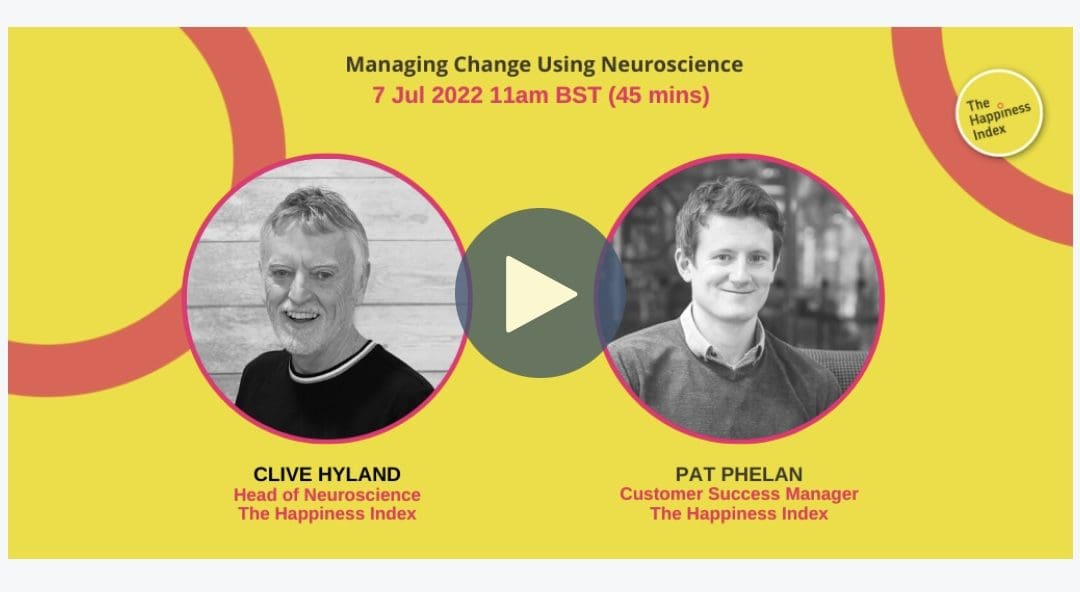Yesterday I watched a really interesting interview from
The Happiness Index about the #neuroscience of change.
Over the years I’ve both led change and been involved in change, some of which have had fundamental impacts on the course of people’s lives and careers, mine included.
What’s always been apparent to me is the emotional turmoil going on in my brain following the announcement of a Big Bang change. You’ll recognise what I mean when I describe the scenario of a person going to a doctor and getting bad news following test results. The scenario invariably has a voiceover of the immediate thoughts whizzing around the person’s head being far louder than the scientific and logical description being shared by the doctor, and drowning them out. Many a time I’ve asked family to tell me ‘what did the doctor say?’, and they have very little recollection.
This seems to be a common response to any big information or announcement of change. I certainly recognise in myself that once someone’s told me something important, however unimportant it is to them, for the next few minutes I have a sense of my stomach doing summersaults, and for hours or days, it’s the only thing I can think and talk about.
This video shares the neuroscience behind what is going on in the brain and body at this time. The initial response to change is instinctive, then the emotions are engaged and only after that are we able to be reflective and rational. This makes so much sense and puts a helpful framework around the experiences I’ve had and I’m sure, you too.
My main take away from the interview was not to try to move yourself or anybody else on to the next stage until they’re ready. When you’re in the emotional stage, don’t fight to switch it off to understand the rational. When someone is being reflective, they may not provide you with the support you need if you’re at the emotional stage. You have to accept that receiving and accepting change takes time and people need to move through stages at their own pace. If you’re leading change it’s your responsibility to recognise the stages and give people what they need at that particular time. If you give them information or direction when they’re not at a stage to accept it, it is unhelpful to you both
This is a great interview. It’s only 45 mins long. Please do give it a watch if you manage people or are ever involved in change. (I guess that’s all of us, then!)

